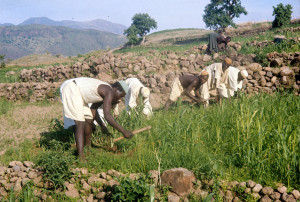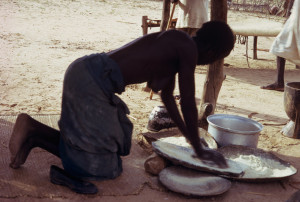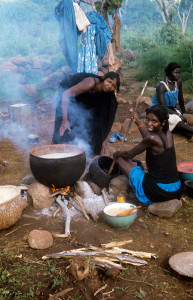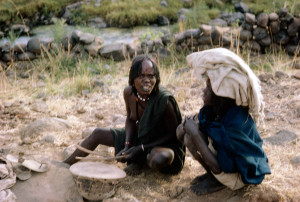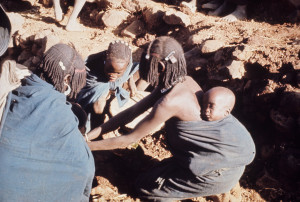Weeding millets. During “beer-work parties” (Fur: “tawisa”, Arabic: “nafir”), an individual cultivator (man or woman) mobilizes neighbours (men and women) for work by serving them beer (Fur: “kira” Arabic: “merissa”) and sometimes some food. Refusal to accept an “invitation” is taken as an indication of an “unfriendly” relation.
Western foothills of Jebel Marra.
Photo: Gunnar Haaland, 1969
